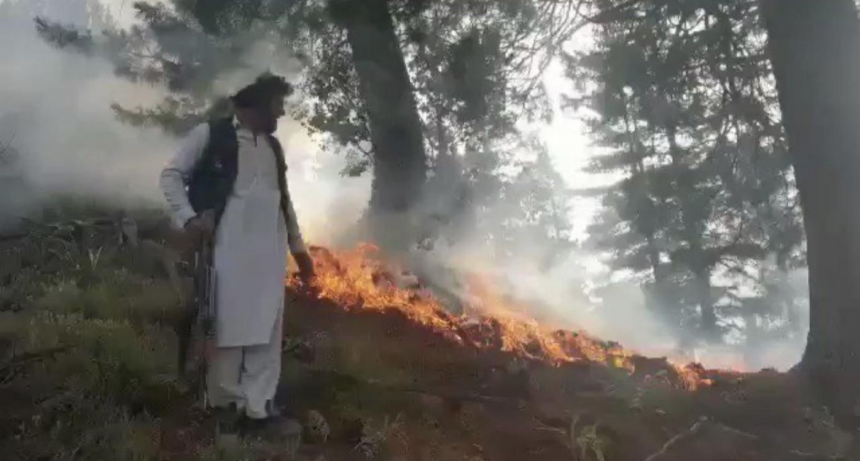RASC News Agency: In a devastating environmental crisis, a wildfire has been ravaging the forests of Kunar Province for more than 48 hours. The fire originated in the Nawah Khur area of Nari district, consuming an estimated 12 hectares of natural woodland, including pine trees and dense undergrowth. Despite ongoing efforts, the blaze remains unchecked. Local villagers report that the flames have engulfed vast stretches of forest, pushing an ominous front toward the Durand Line. Taliban-appointed district chief Aminullah Shahab confirmed that both locally coordinated firefighting teams and community members are struggling to suppress the blaze. He added that a critical shortage of resources especially water and proper equipment has made containment efforts almost futile.
With the cause of the fire still unconfirmed, suspicions are mounting. Locals point to a worrying pattern of forest fires historically linked to illegal logging, where perpetrators often find themselves above accountability. Kunar and its neighbouring province, Nuristan rich in timber and biodiversity have long been vulnerable to such nefarious schemes. Observers note that in past incidents, those responsible for environmental oversight frequently appear complicit or conveniently absent when investigations occur. Even regional satellite reports confirm significant swirling heat-spot clusters in Kunar’s forest belt, yet no aerial intervention or central government support has materialized to assist local responders.
This blaze is more than a natural disaster it is a manifestation of the Taliban’s persistent neglect of environmental protection, crisis preparedness, and community welfare. The regime’s failure to even request international firefighting assistance reflects a broader pattern of inaction that places both ecosystems and human lives at grave risk. If immediate, well-resourced intervention does not follow, Kunar’s wildfire may escalate into a full-blown ecological and humanitarian catastrophe one from which the region may struggle to recover.






